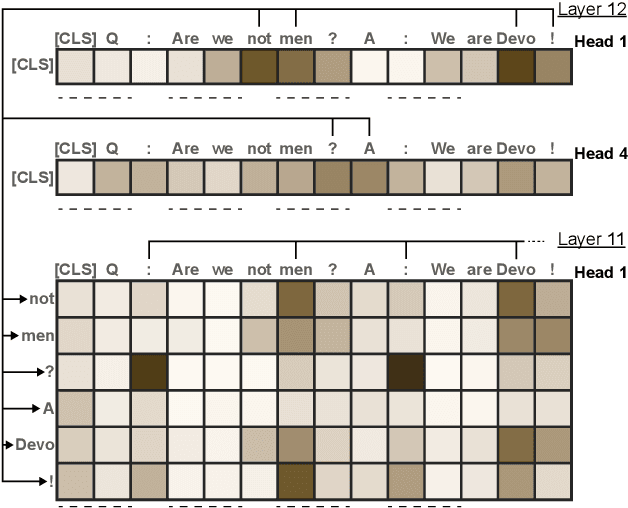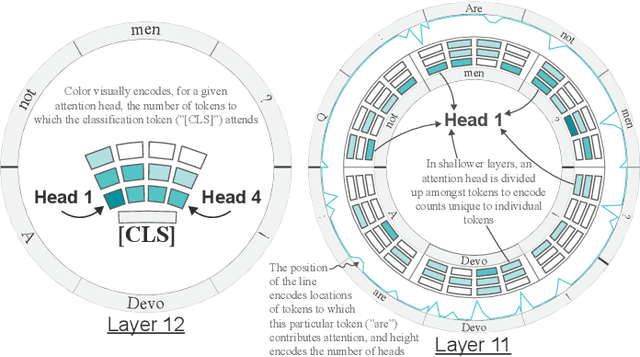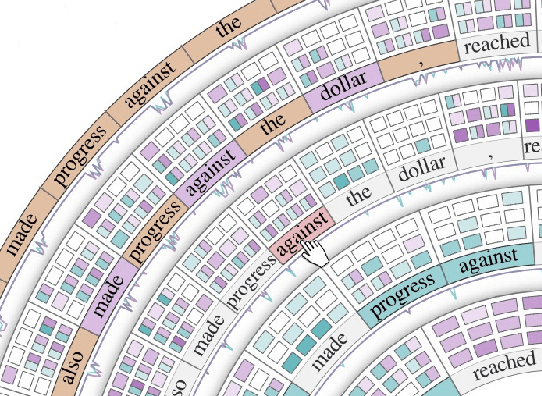Joseph F DeRose
Attention Flows: Analyzing and Comparing Attention Mechanisms in Language Models
Sep 03, 2020



Abstract:Advances in language modeling have led to the development of deep attention-based models that are performant across a wide variety of natural language processing (NLP) problems. These language models are typified by a pre-training process on large unlabeled text corpora and subsequently fine-tuned for specific tasks. Although considerable work has been devoted to understanding the attention mechanisms of pre-trained models, it is less understood how a model's attention mechanisms change when trained for a target NLP task. In this paper, we propose a visual analytics approach to understanding fine-tuning in attention-based language models. Our visualization, Attention Flows, is designed to support users in querying, tracing, and comparing attention within layers, across layers, and amongst attention heads in Transformer-based language models. To help users gain insight on how a classification decision is made, our design is centered on depicting classification-based attention at the deepest layer and how attention from prior layers flows throughout words in the input. Attention Flows supports the analysis of a single model, as well as the visual comparison between pre-trained and fine-tuned models via their similarities and differences. We use Attention Flows to study attention mechanisms in various sentence understanding tasks and highlight how attention evolves to address the nuances of solving these tasks.
 Add to Chrome
Add to Chrome Add to Firefox
Add to Firefox Add to Edge
Add to Edge